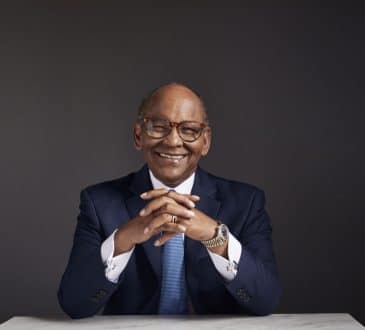6 ways we all can take care of leaders who struggle emotionally

In a world where pressure and division often overshadow kindness, being a compassionate leader requires unwavering resolve to navigate uncharted waters. Leadership can be a lonely journey. From the boardroom to the frontlines, the weight of making decisions that affect not only a company’s future but also its people’s lives can take a profound emotional toll.
Leaders constantly balance high expectations, navigate complex socio-political landscapes, and shoulder immense responsibility—often in silence. This compounded stress can lead to burnout and compassion fatigue. While society often views leaders as paragons of strength, what if we acknowledged that they, too, can struggle emotionally?
Taking care of leaders—just like anyone else—requires empathy, compassion, and kindness. Here are six ways we can support leaders who may be struggling emotionally, offering them the space to be human.
- Foster a culture of care and psychosocial safety
Leadership in today’s socio-political climate demands immense resilience, but no one can thrive in a culture defined by apathy, constant pressure, and hyper-competition. It is crucial to create environments where empathetic and compassionate leadership can flourish. Empathy fosters understanding, while compassion drives action. When leaders feel supported by a compassionate community, they are better equipped to face difficult decisions, setbacks, and crises. This culture should not only be cultivated within companies but across sectors and industries—inviting dialogue, transparency, and mutual support at every level. - Address loneliness
Loneliness is a silent epidemic among leaders. The higher the position, the fewer people there are to truly confide in. Many leaders struggle with isolation, fearing vulnerability or believing they must remain solitary figures of authority. Encouraging authentic connections among leaders—whether through mentorship, networking groups, or simply fostering a culture where leaders check in with one another—can ease this isolation. Leaders who feel connected to others and have trusted confidants are better positioned to deal with the pressures of their roles. By creating opportunities for genuine human interaction, we reduce the emotional strain that often leads to burnout. - Encourage and model self-care
In a world that often values productivity over well-being, leaders may feel compelled to hide their struggles, fearing judgment or loss of respect. Encouraging leaders to prioritise rest and personal time is vital for their emotional well-being. This includes advocating for genuine breaks, setting healthy boundaries, and modelling restfulness at the top. Leaders are far more effective when well-rested, focused, and able to recharge. Taking time to pause is not a luxury; it’s an essential part of sustainable leadership. - Offer genuine appreciation and recognition
One of the greatest sources of stress for leaders is feeling unappreciated despite their hard work and constant effort. Whether it’s a lack of recognition from peers or a disconnect from the very people they are striving to serve, this sense of invisibility can wear down even the most resilient leaders. As a community, we can take simple yet impactful steps to show leaders that their emotional well-being matters. Genuine words of appreciation, both public and private, can help reduce the weight of this burden. Regular recognition reminds leaders that their emotional and mental health are valued, not just their productivity. - Create opportunities for open dialogue
Leaders often feel pressured to shoulder challenges alone, which takes a significant emotional toll. To help leaders emotionally, we need to create open channels for dialogue. These spaces allow leaders to express their emotional needs without fear of judgment. Consider confidential coaching sessions, leadership retreats focused on well-being, or meetings dedicated to addressing emotional health. Regular, open dialogue ensures leaders feel heard and understood, reducing emotional strain. Prioritising these conversations fosters a culture of trust and support, making leadership more sustainable and emotionally fulfilling. - Support equilibrium, not just balance
For too long, mental health struggles in leadership roles have been stigmatized or dismissed as signs of weakness. But it doesn’t have to be this way. Support isn’t just about offering kind words—though that’s a crucial start. It’s about implementing tangible systems that help leaders manage their stress. This could include processes that enable delegation of responsibilities and clear functional accountability. Encourage leaders to set realistic boundaries, make time for family, and pursue personal interests outside of work. When we model equilibrium, it signals that well-being matters just as much as performance.

Lead with care for the benefit of all
We are living in an age defined by rapid change and constant unrest, where showing compassion as a leader isn’t just difficult—it’s a radical act of courage. Taking care of the emotional well-being of leaders is not just an investment in their health; it’s an investment in the success of entire organisations. As we navigate the complexities of today’s world, let’s remember that true leadership involves not only inspiring others to achieve great things but also taking care of those who inspire us.
——————
Written by Dr. Siew Fang Law and Hannes van Rensburg. Their new book, The Power of Care, is available at www.BentoBoxOfCare.com
Have you read?
The World’s Best Medical Schools.
The World’s Best Universities.
The World’s Best International High Schools.
The World’s Best Business Schools.
The World’s Best Fashion Schools.
The World’s Best Hospitality And Hotel Management Schools.
Bring the best of the CEOWORLD magazine's global journalism to audiences in the United States and around the world. - Add CEOWORLD magazine to your Google News feed.
Follow CEOWORLD magazine headlines on: Google News, LinkedIn, Twitter, and Facebook.
Copyright 2025 The CEOWORLD magazine. All rights reserved. This material (and any extract from it) must not be copied, redistributed or placed on any website, without CEOWORLD magazine' prior written consent. For media queries, please contact: info@ceoworld.biz








